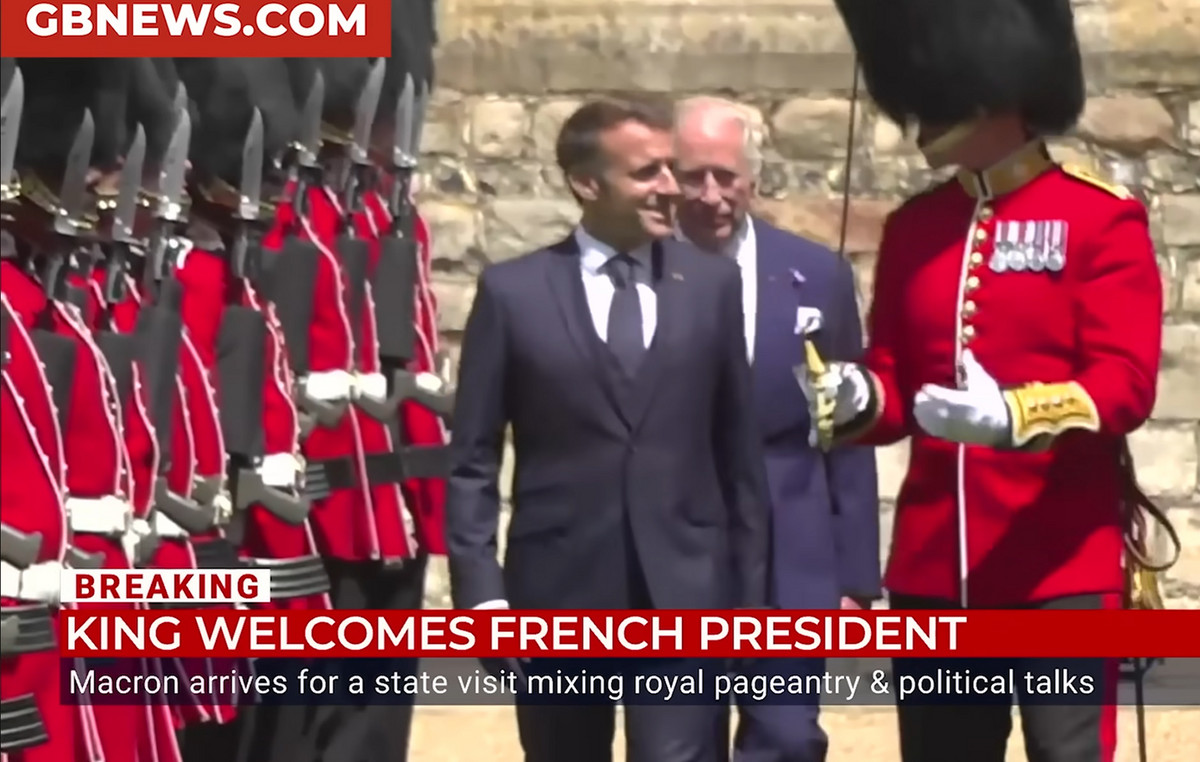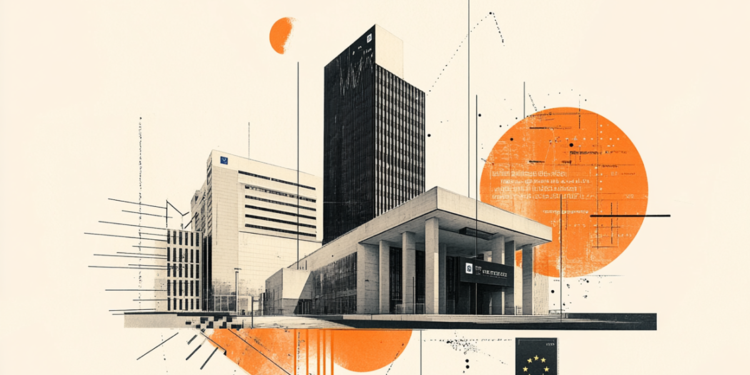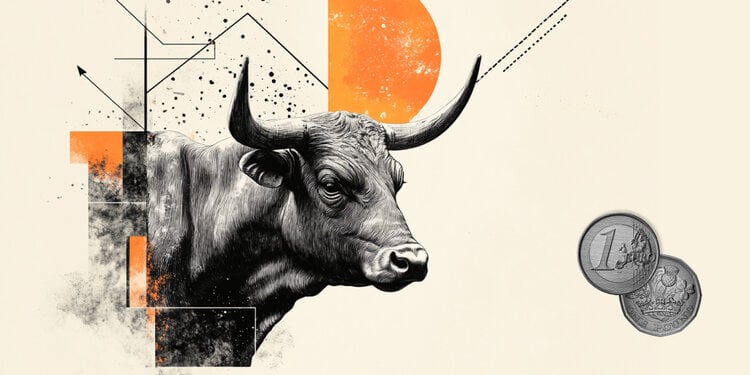“I have always felt like a fish out of water.” Sometimes, even in the sciences, the lateral thought and a different gaze win. The proof of this is Monica Gori, responsible for the Italian Institute of Technology (IIT) in Genoa of the U-Vip (Unit for Visally Impired People), of a team of 45 researchers who develop innovative technologies based on the scientific knowledge of the brain to create tools at the service of people. As she herself, in that world “she entered the window” and has opened a completely new research vein.
Let’s start from the beginning.
«I grew up in Arezzo. At the end of the middle school, the teachers suggested to my parents not to send me to a high school because I was not good enough. Since I was a child I had a great passion for drawing, so I enrolled in the State School of Art, thinking that in the end I would have had a ready job ».
And then?
«I started studying art and goldsmiths and I learned everything: welding, changing, drawing, sculpting. I fell in love with art and discovered that I was not so bad, so I gained confidence in myself. I started taking painting exhibitions and 18 years old I had my first personal ».
But then he changed his way.
«I wanted to do the Academy of Fine Arts, but I realized that an artist, to survive, must work on commission and do what others like. I wanted to feel free. So I decided to keep art as a passion and to study psychology. I have always had a propensity for listening and everyone confided with me, I fascinated the idea of being able to help. What I didn’t know is that I would have liked to study the brain so much and be a researcher. I started psychology precisely to understand human interactions and I was passionate about neuroscience. I went very well, I had a very high average, and they proposed to me to make a thesis at the CNR of Pisa. An unmissable opportunity, but there was the rent to pay. I was doing some jobs: I taught watercolor I delivered pizzas and in the meantime I chased my passion ».
What was the most important meeting?
«Among the courses of experimental psychology, there was one on the visual perception held by an Australian professor, David Burr. His unconventional thought and his immense knowledge of visual neurosciences inspired me. Even today, when I read his elegant articles, I feel honored to have had it as a mentor. So I realized that this was my way and I worked on the visual perception at the CNR of Pisa for four years. It was the first redemption against those who had not believed in me ».
What do you remember of those years?
«I found myself in the midst of people at the top and I arrived slowly, but with a final shot. I attended a high school that I liked very much, where I had fun, but in which English was not taught. I started studying it at 18. Then the university made me understand my value and Pisa exploded. When I had the contract to do research on visual perception, I entered the tip of feet. But over time I realized that even the things that seemed difficult to me succeeded with some ease. I started to express my creative part, and that made the difference ».
Do you think your creativity has given you an extra gear?
“Yes, because having an out of the ordinary idea opens new approaches. At the beginning the others look at you with skepticism, they think: “What is saying” but then it works, and it’s beautiful ».
Why did you leave the CNR?
«My studies were beautiful, but a little ends in myself, too far from practical applications. However, my goal remained to get to people, who was the reason why I had chosen psychology. In those years, the Italian Institute of Technology in Genoa was born and I decided to participate in the doctoral notice in humanoid technologies, open to an interdisciplinary team ».
And how did it go?
«I was among the few women and the only psychologist. They asked everyone if they knew how to weld, but not to me. Maybe they thought: “Psychologist, woman, let’s not embarrass her”. At the end of the interview I said: “Why don’t you ask me?”. Because I knew how to weld, I had learned it doing goldsmiths. I do not know if this has influenced my admission, but it has shown me the importance of interdisciplinarity and unconventional paths. So I started the studies that led me to the idea of combining experimental psychology and technology. There were ten, only two women, and all engineers except me and a biologist ».
Was it difficult?
«More than anything else frustrating having to demonstrate that my contribution was useful, that I was not a clinical psychologist, that my knowledge of the brain could make a difference. I wanted to do something different: transforming my research into technology. I believe that the goldsmith’s helped me, because even there I start from an idea, for example a Gioilello, and then I had to make it. With my studies I opened a new vein: multisensory technology for children, especially blind ».
So was Abbi come, the sound bracelet that helps blind children to orient themselves in space?
“Yes. By studying the brain, we discovered that in blind children the other senses can also be lacking. This happens because the ability to integrate multisensory information is not always present since birth. The question was: how to recover these skills when vision is missing? The answer came with the ABI bracelet, a simple but revolutionary idea. Tested on children and adults, the device has shown to reactivate the brain through hearing, offering a new way of interacting with the world. It looks simple: a small chest on a strap that emits different sounds. In reality it is based on the most advanced theories on the role that the vision has in the development of children and allows the blind to “replace” the view with hearing, in order to have acoustic feedback of their own and others actions, understand how it is made one’s body and how the space around them is structured. Above all, it allows children to play without the need to see ».
And from there did you open a vein linked to multisensory?
«Multisheterity can help to regain skills. All the people who collaborate with me follow this line that I traced. And from there many searches have opened ».
Just today you inaugurated a new device
“These are the Multisensory Integration Climb which was born from the collaboration between our team and the UOC physical medicine and rehabilitation of the Giannina Gaslini Institute, whose manager is Dr. Chiara Tacchino. It is a multisensory climbing wall that we have installed at the Genoa hospital for children with strokes. The wall has multisensory sockets that produce light and sound and when they approach you. So a child can climb the hospital as rehabilitation and all paths are customized according to his needs. Once again it is a technology that comes direct to people, especially children ».
Next objectives?
“We are moving our studies to the infant, with all the difficulties of relating to a child who still does not speak and develop technologies he can accept. As I am done, I always raise the bar a little because otherwise I bore ».
What were the most difficult moments you crossed?
«In general, the fact that I am always a bit of a fish out of water. Before I was the psychologist artist, then I was the engineer psychologist. I did a whole strange path that was my strength, but in some moments a little difficult. It is also the beauty of always starting new things ».
And how long?
«I was so strange that this went into the background. For example, I think that my engineer colleagues who have made an all -male path have done more difficult. I entered the window a little, I came from psychology where they were all girls ».
And the difficulty of being a mother and researcher of three children?
«That is tiring, but I think it is also a father and researcher, because my husband and I do both research anyway. He is an engineer and works here at the Italian Institute of Technology and we started collaborating in the wall ».
How much does it have to support each other?
“It’s fundamental. We met during the doctorate, because we played together with volleyball and I must say that we are a team. But maybe I am so serene because also because I put great limits on work: separo professional and private life. I porto the super fantastic results, I am very happy, I have collected many funding, made numerous publications, but in the evening I do not work, the weekend detaches and when I have to take my motherhood I take it ».
Often great competitiveness in the world of research requires tight rhythms …
“In the thing I do I really are the only ones, so there is competition but not in what I do.”
What would you say to a boy who today wants to take a scientific road and to whom perhaps, how did the teachers advise against you? And does painting still exist in your life?
«I would listen to him and then I would explain something I understood. The brain is an impressive machine, it is not said that because it does not work as the others expect in the first period, then it stops. I always tell the guys when I go to talk about my story. Last time a student said to me: “Ah oh well, but I attend the technical institute, I will never be able to do what you do you.” And I replied: “Look, up to 18 years I didn’t speak a word of English , I didn’t know anything about what I’m doing now ”the brain works, it doesn’t stop working after high school, it doesn’t stop working after university, it’s a fantastic car just activate it
«For a couple of years I have started again I have been doing something that I have renamed Empathic art. I speak with people, I make myself told their emotion and I represent it on the canvas.
A bit like with my work: I create a connection with others and then I try to give back something of what they give me. Sometimes science, like art, is not very relational, instead there is a need to create a bridge with people. This is perhaps what keeps many boys and girls away, right? It seems to you that science is a difficult thing, unattainable, abstract and instead it can go back, impact your life people around you, on the life of those who need. A more human science and also a more human art is the one in which I always believe ».
Source: Vanity Fair
I’m Susan Karen, a professional writer and editor at World Stock Market. I specialize in Entertainment news, writing stories that keep readers informed on all the latest developments in the industry. With over five years of experience in creating engaging content and copywriting for various media outlets, I have grown to become an invaluable asset to any team.







